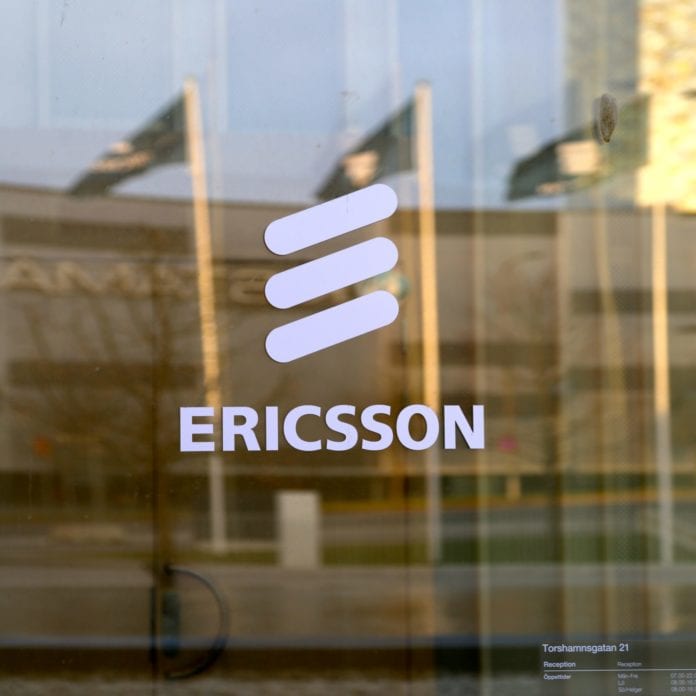Extreme weather events and other major disruptions are a direct consequence of irreversible global warming, and a fact of modern life; technology offers a way for people to “address everyday challenges caused by climate change in the 2030s”. This is the gist of a new consumer survey by Swedish telecoms vendor Ericsson, which asked 15,000 early tech adopters in 30 major cities in November last year about the state of the planet and the state of tech.
The study found that 83 percent of respondents believe the world will have reached the maximum 1.5°C global warming mark by the end of 2030, deemed by international agreements to be the limit above which negative climate consequences are likely. Almost 99 percent of those polled expect to be “proactively using internet and connectivity solutions” by then to “personally address the impact of climate change and global warming”, stated Ericsson.
About 55 percent of early adopters in metropolitan areas believe that climate change will have a negative impact on their lives and expect to turn to connectivity solutions as countermeasures, Ericsson summarized. At the same time, some 59 percent of respondents believe that innovation and technology, more generally, will be “crucial to address everyday challenges caused by climate change in the 2030s”.
The new report also finds that cost of living, access to energy, and safe and reliable connectivity are top-of-mind for early adopters. Personal economy and lifestyle interests are the top drivers for technology adoption, but “large-scale collective behaviors” may also result in big changes in areas such as where and when we work, said Ericsson. The report suggests a “no-rush mobility trend” where society is organized around peaks and troughs in energy usage, rather than clock-time.
Magnus Frodigh, Head of Ericsson Research, said: “Consumers are clearly saying that reliable and resilient internet connection will be of utmost importance to their daily lives, and their personal efforts to address climate change, as they expect extreme weather changes and negative climate impact to be more common. Consumers not only expect the needed connectivity to be in place on a global scale, but to be in place quickly.”
The findings are in the latest version of an annual Ericsson report called 10 Hot Consumer Trends – which appears this year with the subtitle, Life in a Climate-Impacted Future. The report polled “early adopters of AR, VR, and digital assistants”. A full list of the trends summarized by respondents in the new report is included below; all the quotes are direct from Ericsson. The full report is available here.
THE TRENDS
1 Cost Cutters
“Digital services will help consumers control food, energy and travel costs in unstable climate situations. More than 60 percent of urban early adopters are concerned about higher costs of living in the future.”
2 Unbroken Connections
“Reliable and resilient internet connection will become more important if and as extreme weather events increase. Some 80 percent of urban early adopters believe there will be smart signal locators that show optimal coverage areas during natural disasters in the 2030s.”
3 No-Rush Mobility
“Strict time schedules may become a thing of the past as climate regulations and energy efficiency change the meaning of flexibility. About 68 percent of respondents would plan activities using schedulers that optimize based on energy cost, not time efficiency.”
4 S(AI)fekeepers
“AI is expected to power services that protect consumers during increasingly unpredictable and unstable weather. Almost half of urban early adopters say they will use personalized weather warning systems for their own safety.”
5 New Working Climate
“Corporate carbon footprint constraints, rising costs and accelerated digitalization will shape work routines of the future. Seven in ten foresee company AI assistants planning commutes, tasks and resources to minimize work-related carbon footprints.”
6 Smart Water
“As freshwater may become scarcer in the 2030s, consumers anticipate smarter water services to conserve and reuse water. Almost half of urban early adopters say their household will use smart water catchers on roofs, balconies and windows that intelligently open when it is raining to catch and clean rainwater.”
7 The Enerconomy
“Digital energy-sharing services may alleviate the burden of rising energy costs in the 2030s. Energy could become a currency as 65 percent of urban early adopters predict consumers will be able to pay for goods and services in kWh using mobile apps in the 2030s.”
8 Less is more digital
“Digital product replacements may become status markers as physical overconsumption could get both expensive and socially criticized. Dematerialization of consumption habits could accelerate as one-third of urban early adopters believe they will personally use shopping apps that suggest digital alternatives to physical products.”
9 Natureverse
“Experiencing nature in urban areas without traveling could be standard in the 2030s, in the face of continued climate change and potential travel limitations. Four-in-ten urban early adopters want to personally use a virtual travel service that lets them experience nature reserves and mountain trails in real time as if they were there.”
10 Climate Cheaters
“Respondents say consumers will find ways to bypass stricter environmental restrictions due to higher prices and energy and water rationing. Over half of urban early adopters predict online hacking apps will enable people to tap into neighbors’ water or electricity supply illicitly.”

